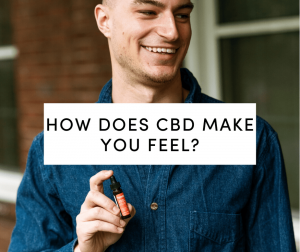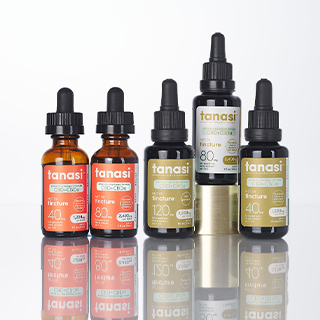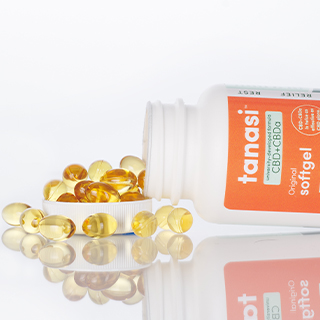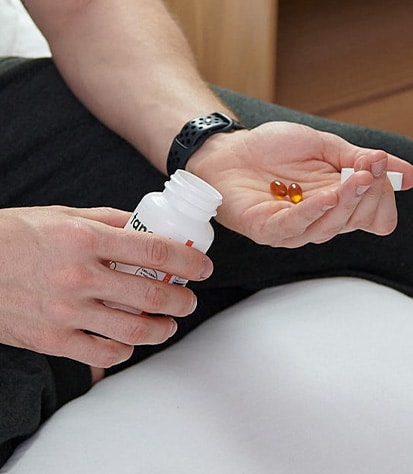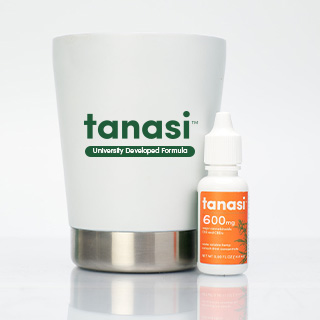How Does CBD Make You Feel?
Posted on April 16th, 2022
Cannabidiol (CBD) is a popular compound that is gaining a lot of traction in the health industry. As more and more research comes out, a lot more people are turning to CBD to help with various health problems. While there is a lot of research pointing to the effectiveness of CBD, there is still a lot more to be done. However, the research that is out is very promising, especially for those looking for help with anxiety and stress. By the end of this article, you will know how CBD can make you feel.
First, you may want to know how it doesn’t make you feel. Many have this false assumption that CBD can get you high. Unlike THC, CBD doesn’t get you high. CBD doesn’t have the same psychoactive properties you get with THC. THC is a similarly structured compound found in the marijuana plant. THC interacts with your internal cannabinoids in a way that gets you feeling sensations of euphoria. CBD doesn’t interact and binds with your receptors in the same way. Some research indicates it doesn’t bind at all. This means it doesn’t cause you to get high which makes CBD much more desirable for those who want similar benefits without this deal-breaking side effect.
Exactly How Does CBD Make You Feel: 
1. Pain Relief
One of the most prominent ways CBD is used is as a pain reliever. A lot of people turn to CBD for natural pain relief because it can do so without a lot of the side effects of prescription medication. There is still a lot of research needed to be done on this benefit. However, some studies show it can have pain-relieving effects on the endocannabinoid system [1].
These effects may be linked to the way it alters your body’s receptor activity. It can interact with these receptors to delay or even eliminate the relay of pain sensations. This can reduce minor and even chronic pain in individuals who take CBD. You can get similar benefits from using marijuana with THC. However, that comes with the side effect of getting high. You don’t have to worry about the same side effect when you are taking CBD.
2. Helps You Relax
Another way CBD can make you feel is more relaxed. This is a big one for many who are looking to take CBD because a lot of people suffer from different anxiety disorders. If you are one of the many that suffer from anxiety disorders, you would likely benefit from taking CBD. CBD has good effects on those that suffer from anxiety for several reasons.
Studies show that CBD can have positive benefits for those that suffer from anxiety [2]. This is due to the way CBD enhances the activity of certain receptors in the brain. These receptors are in control over the part of the brain that is responsible for anxiety-like behaviors [2]. By taking CBD, you can decrease feelings of anxiety which in turn can help you in many ways. It doesn’t matter if you suffer from General Anxiety Disorder or social anxiety, CBD can be an effective way to better relax. A lot of those that suffer from anxiety issues have increased stress. CBD can naturally help lower your stress levels which can keep you in a mental state of relaxation.
3. Make You Sleepy
Another reason a lot of people turn to something like CBD is to help with sleep. As mentioned, CBD can be a very effective supplement to help you relax. One of the primary side effects of having anxiety is insomnia or sleep-related disorders. By taking CBD, you can decrease the anxiety and feelings of anxiety you are dealing with. This can directly have a positive impact on your ability to sleep.
If you are someone who lays in bed at night worried about your to-do list and other things, you’re likely someone that would benefit from CBD. There have been studies that show CBD can be an effective supplement to improve sleep in those who suffer from Parkinson’s disease [3]. If you are constantly dealing with signs and symptoms of elevated stress and anxiety, you’ll need to control it to improve your sleep. This is something that CBD can do to help put you in a better state of relaxation to fall asleep at night.
4. Puts You In a Better Mood
Another big benefit that CBD can have on how you feel is your mood. According to research, CBD happens may help improve your mood [4]. In fact, one study showed that CBD offered antidepressant-like effects [4]. The exact mechanism that makes it an effective mood enhancer isn’t entirely clear. However, there is sufficient evidence that it may do so by giving you higher quality sleep. You wouldn’t believe the damage poor quality sleep can do to your overall health. Getting poor-quality sleep is an easy way to find yourself in a bad mood all of the time. When you don’t get a lot of quality sleep, you will be much more irritable and moody. When you take CBD, you may improve not only the duration in which you sleep but also the quality of it. This can help to ensure you wake up feeling refreshed and in a better mood for the rest of the day. Whereas, without it, you would likely be tired and irritable throughout.
How Does CBD Make You Feel? Final Thoughts 
In conclusion, CBD is a compound that has a lot of perceived benefits. The benefits are still being examined and they aren’t entirely clear. However, current research points to the efficacy of CBD for several matters. Some of them involve improving your mood, improving your relaxation, and decreasing your anxiety and stress. The good thing about CBD is that it doesn’t come with a lot of side effects you have to worry about.
In general, the side effects are rather mild. It’s not going to get you high like THC. If you are going to purchase CBD, you’ll want to do so through a reliable and reputable retailer like Greenway Herbal’s Tanasi line. The CBD you get from Tanasi also comes with an effective carrier oil (MCT oil) to ensure you get an efficient absorption rate along with additional possible health benefits. They have a variety of different CBD products you can sort through. You can choose extract or even gummies if you prefer.
References:
[1] https://pubmed.ncbi.nlm.nih.gov/32648908/
[2] https://www.ncbi.nlm.nih.gov/pmc/articles/PMC7027889/
[3] https://www.ncbi.nlm.nih.gov/pmc/articles/PMC8161868/
[4] https://pubmed.ncbi.nlm.nih.gov/33668469/

